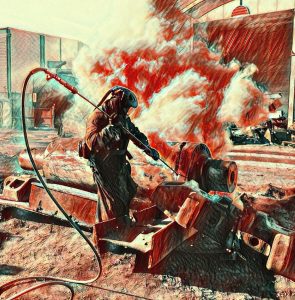The term non-ferrous metals include aluminium, copper, lead, nickel, tin, titanium, zinc, and alloys such as brass. Precious metals such as gold, silver and platinum and exotic or rare metals such as cobalt, mercury, lithium etc. are considered a non-ferrous metals too. Non-ferrous metals have properties such as high density, good corrosion resistance, good electrical conductivity and light reflectivity that are extensively used in many industries.

Gold, silver and copper were the first non-ferrous metals used by humans. Copper was known even to the most ancient civilizations, because it was soft enough to be shaped into various objects and it could be melted. Gold, silver and copper artifacts such as weapon and jewellery were treated as luxury items and handled with great care. The use of non-ferrous metals led to the main transitions of humankind from the Stone Age to the Copper Age, and later to the Bronze Age, when bronze, an alloy of copper with the tin, was invented.
The modern world could not exist without non-ferrous metals as well. Precious and rare earth metals are essential to producing PCs. None of the modern gadgets could function without batteries, and batteries are made of non-ferrous metals. In particular, Lithium-ion batteries are incredibly popular these days and can be found in laptops, PDAs, cell phones and iPods. Non-ferrous metals are used in electrical applications such as wires, circuits, switches and electromagnets and are important for car production. There are no daily life activities that could be done without using these noble and base metals.
Non-ferrous metal recycling is small in volume, but big in terms of value. The growing demand for high-tech devices and their short life is producing a lot of electronics waste; however, the electronics recycling rate is still low for mobile phones and computers. The increasing demand for non-ferrous metals means that recycling industry should create more efficient technologies to extract non-ferrous metals from electronics, because energy is becoming more expensive, and the recycling is more energy efficient than smelting virgin ore.
